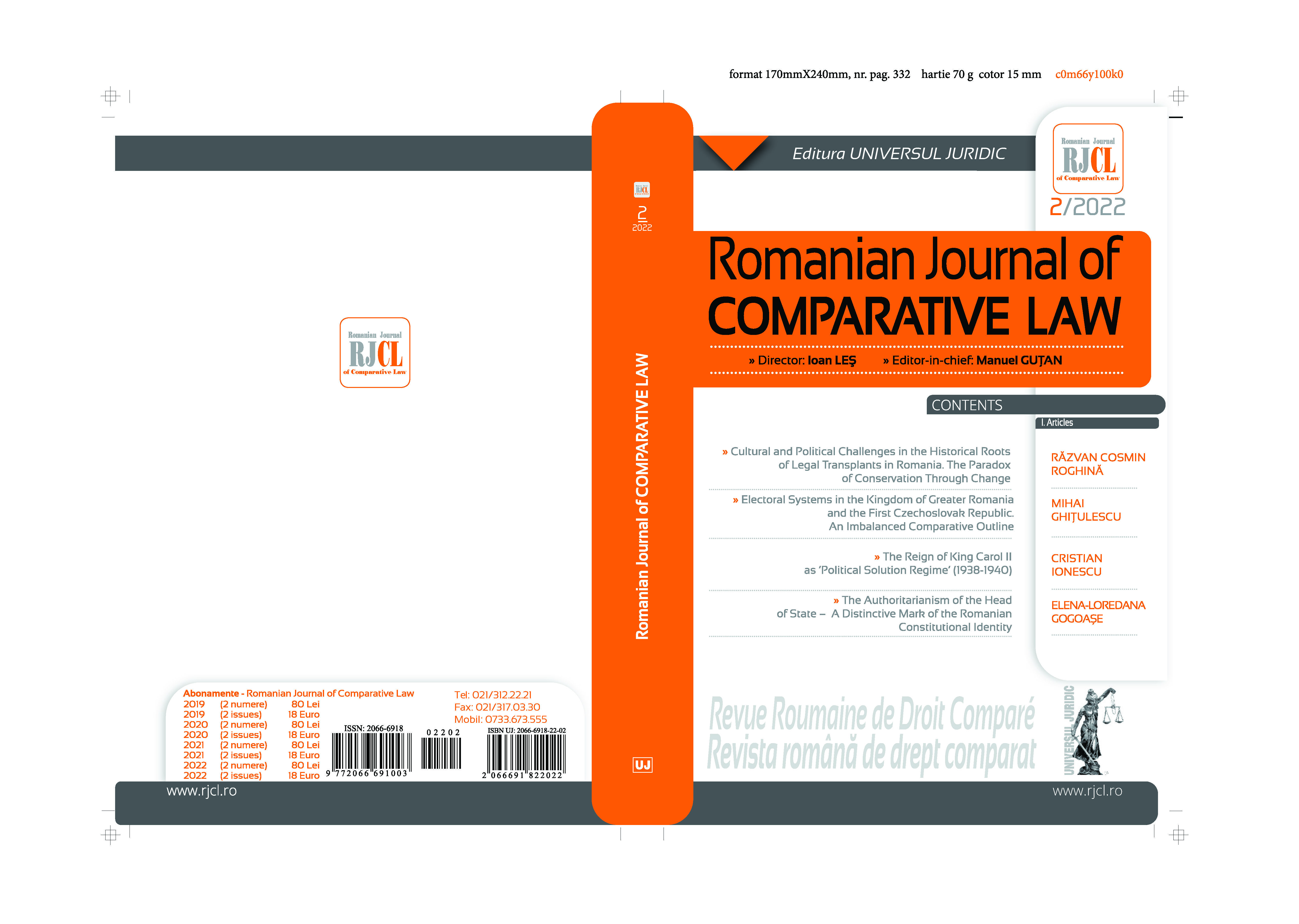Cultural and Political Challenges in the Historical Roots of Legal Transplants in Romania. The Paradox of Conservation Through Change
Cultural and Political Challenges in the Historical Roots of Legal Transplants in Romania. The Paradox of Conservation Through Change
Author(s): Răzvan Cosmin RoghinăSubject(s): Law, Constitution, Jurisprudence, History of Law, Constitutional Law, Civil Law
Published by: Universul Juridic
Keywords: legal transplant; legal change; constitutional identity; legal culture; Romanian constitutional realism; nation-building process;
Summary/Abstract: The paper argues that the Romanian constitutionalism is a result of a multifaceted interaction between historical, cultural, and legal elements that have influenced the evolution of Romanian constitutional reform documents and written constitutions. Despite drawing heavily from foreign legal and cultural frameworks, particularly from France and Belgium, Romania's political ideology and social values have not embraced (profound) liberal transformations. Instead, the core elements of religion and ethnicity played a central role in defining the Romanian nation and political community, underscoring the distinct path chosen by Romania in its process of nation-building. In the first part of the paper, I will provide a brief explanation of legal transplant phenomenology, which will set the methodological landmarks for evaluating the political and cultural contexts that shaped Romanian constitutional transplants from the mid-18th century to the constitutional moment of 1991. In the second part, I shall explore the concrete Romanian historical landscape to observe the roots of choices and motives for seeking change or/and conservation. In other words, I will address the paradox of how cultural and political challenges influenced the adoption of legal transplants while attempting to preserve traditions through transformation. In the third part, I will challenge the axis of time in a more concentrated manner, using the data and contexts highlighted in the previous sections. The scope is to observe the red wire of Romanian constitutional realism, thus, to evade empty shells of political discourses and written (legal) texts that can be simple depositories of dead words. The prevailing method used by the Romanian legal historiography to examine internal constitutional evolutions is still characterized by oversimplification and a lack of critical analysis. When it comes to legal transplants, this approach often leads to conclusions suggesting that the mere presence of foreign institutions and concepts equates to effective or even successful original implementation/ adaptation. In the final part (IV), I will try to emphasize the need of adopting a more nuanced approach when it comes to legal transplants, particularly in light of Romania's constitutional history. There is a need for additional contextual and critical analysis that goes beyond surface-level examination and delves deeper into the underlying intentions and desires behind constitutional changes. Such analysis should also assess the outcomes that were subsequently realized as a result of these changes.
Journal: Revista Română de Drept Comparat
- Issue Year: 2022
- Issue No: 02
- Page Range: 133-226
- Page Count: 94
- Language: English
- Content File-PDF

